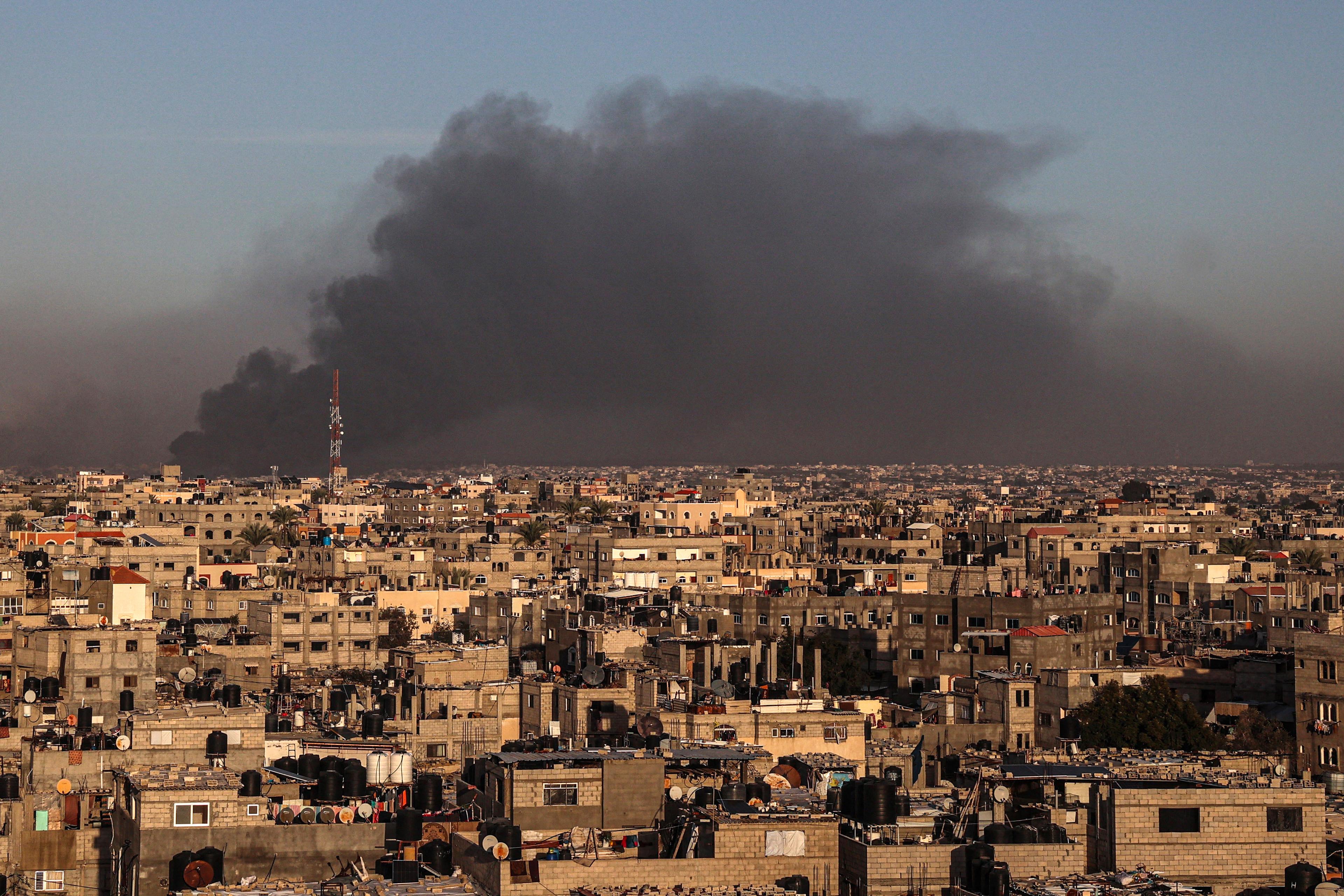World on Fire, Part 1: The Houthis, Israel’s Impossible War, and Worsening Middle East Chaos
Natan Sachs, director of the Center for Middle East Policy at Brookings, joins Dereks to talk about the current state of the Middle East
The chaos in the Middle East is getting worse. It’s not just in Gaza. It’s not the spasms of violence in the West Bank. It’s not just the northern border with Lebanon, where Israel is braced for the possibility of a new war. It’s not the Houthis in Yemen, disrupting Red Sea trade. It’s not just Iran urging on these groups. It’s all of it, all at once. Natan Sachs, director of the Center for Middle East Policy at Brookings, joins to break this all down and offer several big-picture explanations for why so many long-standing problems in the Middle East are getting worse at the same time.
If you have questions, observations, or ideas for future episodes, email us at PlainEnglish@Spotify.com.
In the following excerpt, Derek talks with Natan Sachs about what has happened in the Israel-Hamas war up to this point and what Israel’s ultimate goal is.
Derek Thompson: I am so happy you’re here. I would love your help to summarize the state of all of this turmoil that we’re seeing in the Middle East. And I think we should begin with the state of the military campaign in Gaza from the perspective of Israel. First, I would love you to start by reminding us: What is Israel trying to do here, and how close do you think they are to achieving it?
Natan Sachs: Well, thanks again for having me. I wish I could say it’s a pleasure, but honestly, nothing about this has been a pleasure for four months at least. This situation is horrendous. To recap, the war has been going on since October 7, since the Hamas invasion basically of southern Israel. The Israeli response was very, very forceful and continues to be so but has changed in phase. So Israel has now even declared that it has entered a new phase, perhaps the third phase. From the beginning, we saw a massive aerial bombardment that caused enormous damage, especially in the northern Gaza Strip. We then saw an Israeli incursion with ground troops to the north, but also the southern Gaza Strip after a while. And now we’re seeing a scaling down of the operation. That does not mean an end of the operation by any means, but it means a change of phase, less ground troops, hopefully less civilian casualties.
Of course, already we’re seeing inside the Gaza Strip a major humanitarian crisis, and the winter is already upon us. And in Israel, [there are] still hundreds of thousands of displaced people from towns and villages along the border of the Gaza Strip, but also the border with Lebanon for fear of fighting with Hezbollah, which has been heating up.
The Israeli aims have been misunderstood dramatically abroad, partly because they were very badly defined inside Israel. Israel sort of vacillated between what the aims would be. It started with all the usual grandiose rhetoric that you would hear after an enormous historic trauma like October 7, which—really bears repeating—was, from the Israeli perspective, a historic trauma, something that will be remembered for generations to come. And so, you saw the Israeli response sometimes rise to absurd rhetoric that still continues today. But if you look at the actual military campaign, the way the cabinet defined the goals to the military and the way the military defines it, it is still expansive but much more contained. And that is to degrade and remove Hamas’s ability to govern the Gaza Strip as an independent statelet and to create the military power from the Gaza Strip to attack Israel.
In other words, not to eradicate Hamas from the face of the earth. Hamas is a political movement and an idea; it won’t disappear after this war for sure. But actually, the Israeli goal is not that. The Israeli goal is that Hamas can no longer be allowed to govern a statelet bordering Israel and to amass such a massive amount of weapons and train troops to invade Israel again, with the underlying impetus from the Israeli perspective being that what happened on October 7 can never be allowed to happen again under any circumstances, no matter how much criticism Israel receives abroad. And that is a very strong impetus among wide, wide swaths of the Israeli public.
Thompson: That was a really fantastic summary. And it retraced what makes me so torn about this conflict. I absolutely sympathize with the idea that if the government of any neighboring state invades to kill you and kills 1,200 of your citizens and lobs rockets at you after weeks and months and states that permanent warfare is their explicit and inviolable goal, that’s not an acceptable security dynamic for any country in the world. No militarized country in the history of the world would refuse to respond to that provocation, and yet Israel’s response to that provocation has been a humanitarian disaster, a public relations disaster. I think you touched on that when you spoke of Israel’s strategic confusion and the degree to which they were confused in their communication of their strategy to the world.
And it has also, I think, produced a strategic quagmire for Israel because they are leaving behind, or at least seemed to leave behind, a Gaza where I worry that a radical militaristic response will breed in the destruction that is, in particular, north Gaza. And so I wonder, on the one hand, yes, the strategy is clear to me: Uproot Hamas. You cannot live with this kind of neighboring statelet, as you called it. And yet the unwinding of Hamas has been horrendous from a humanitarian and public relations strategic standpoint. Am I seeing something wrong here? Is there anything that I’ve just said in my sort of tortured summary of this crisis that struck you as actually wrong?
Sachs: I wish I could say so. No, I think your self-torture is correct. And self-torture is the right emotion facing all of this. And I think that’s exactly the dilemma. The reason Israel enters into this complete, terrible dilemma with horrendous consequences, certainly in the Gaza Strip and in Israel, is the effect of October 7.
I imagine that October 7 succeeded far beyond what Hamas imagined. Perhaps they were interested in an Israeli invasion just like this. I don’t know. But regardless, I don’t expect that they thought they would catch Israel so left-footed and therefore succeed to this degree, which created in Israel a dynamic, which really—I know I’m repeating myself to a certain degree, but in Israel, there’s this sense of historical imperative, almost that Israel exists so that this cannot happen. That’s truly for many Israelis, not all Israelis. But for many Israelis, the reason [for Israel’s being] is that a pogrom like this cannot happen, because if this is allowed to happen, you might as well live in Eastern Europe and allow it to happen again. And therefore, it’s really hard to exaggerate the rallying around the idea that Israel cannot allow this to happen. But it did not solve in any way the conundrum that existed before. The reason Israel didn’t invade before is exactly as you say: The consequence is horrendous. That’s still true today.
This excerpt was edited for clarity. Listen to the rest of the episode here and follow the Plain English feed on Spotify.
Host: Derek Thompson
Guest: Natan Sachs
Producer: Devon Baroldi
Subscribe: Spotify

